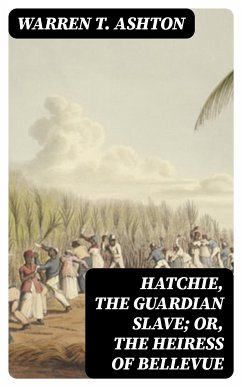In "Hatchie, the Guardian Slave; or, The Heiress of Bellevue," Warren T. Ashton crafts a compelling narrative set against the social and racial tensions of 19th-century America. The novel intricately weaves together themes of loyalty, love, and sacrifice, while employing a richly detailed prose style that captures both the beauty and complexity of the era. Ashton's work is notable for its exploration of the dynamics of slavery and freedom, providing readers with a nuanced portrayal of its characters, particularly through the lens of Hatchie, a guardian slave, whose resilience and moral fortitude drive the story. Warren T. Ashton was deeply influenced by the societal issues and moral dilemmas surrounding slavery during his time, as well as the burgeoning movements for social justice and equality. His background as a novelist and social commentator equipped him with a unique perspective, allowing him to tackle sensitive subjects with both empathy and insight. Unlike many of his contemporaries, Ashton sought to humanize his characters, prompting readers to engage with their struggles and triumphs on a personal level. This novel is highly recommended for readers interested in historical fiction that confronts pressing moral questions. Ashton's thoughtful examination of his characters and the world they inhabit invites reflection on the enduring impacts of history, making "Hatchie, the Guardian Slave" a powerful addition to any literary collection.
Dieser Download kann aus rechtlichen Gründen nur mit Rechnungsadresse in A, B, BG, CY, CZ, D, DK, EW, E, FIN, F, GR, H, IRL, I, LT, L, LR, M, NL, PL, P, R, S, SLO, SK ausgeliefert werden.
Hinweis: Dieser Artikel kann nur an eine deutsche Lieferadresse ausgeliefert werden.









